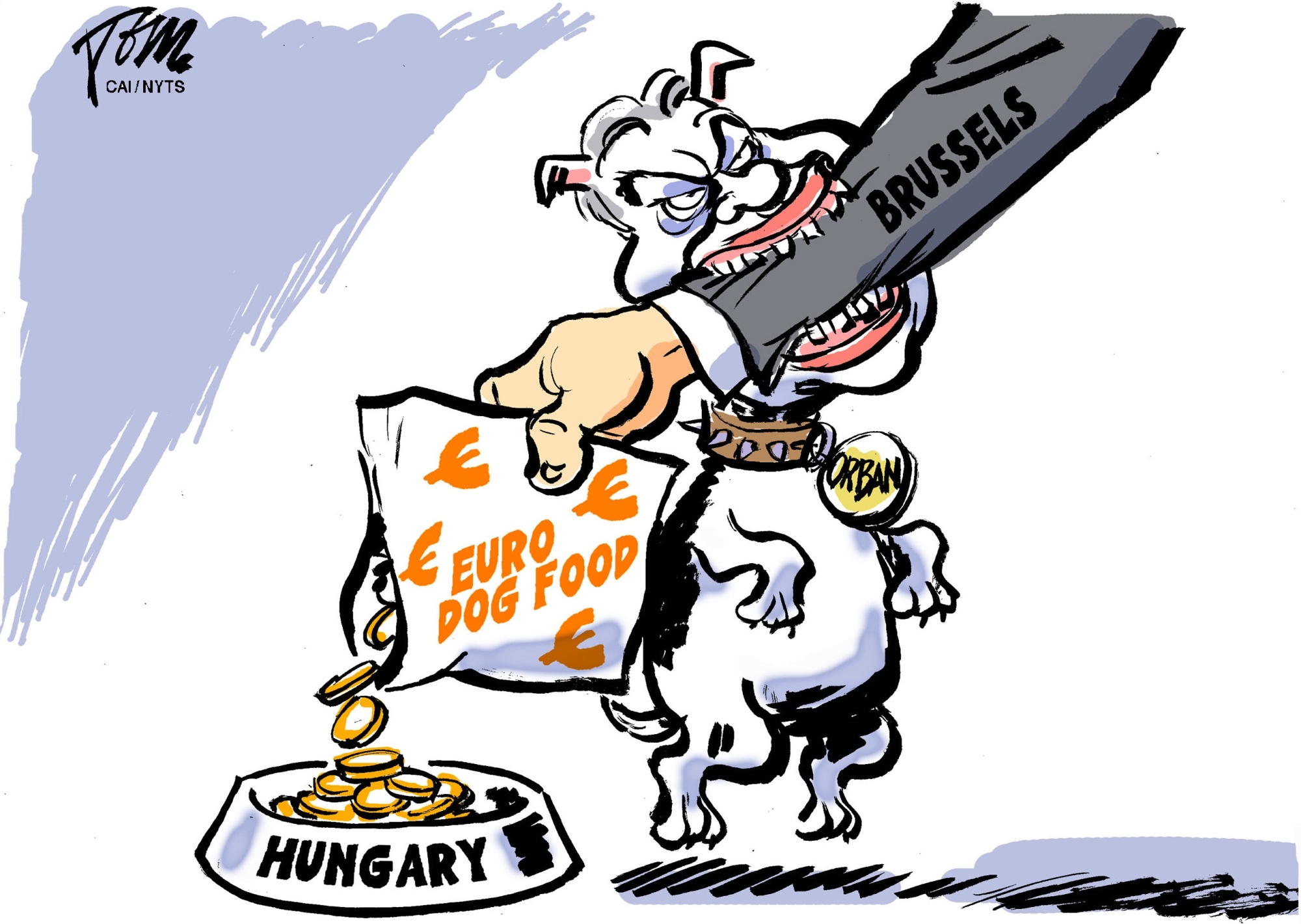The landslide victory of Prime Minister Viktor Orban's Fidesz party in Sunday's election in Hungary may have disappointed European liberals — but it drives home an important truth: The limits of the acceptable on the right flank of European politics are moving further to the right.
Orban has often been described as Europe's black sheep, an outsider challenging European values, setting a bad example for others, such as the Polish, Czech and Slovak nationalists, and emboldening parties of the far-right fringe in Western Europe. Indeed, French nationalist leader Marine Le Pen, one of the top members of Germany's anti-immigrant AfD party Beatrix von Storch and Dutch populist leader Geert Wilders all joyfully congratulated Orban on winning a constitutional supermajority on Sunday. This is the outcast crowd of European politics, whose electoral success is enough to produce scary newspaper headlines but not to govern their countries.
Orban, however, is not part of this bunch. Fidesz belongs to the same European Parliament faction as German Chancellor Angela Merkel's Christian Democratic Union — the European People's Party. Despite sporadic criticism from within the EPP, it's a member in good standing, and EPP President Joseph Daul wished Orban success before the election. German Health Minister Jens Spahn — who is considered one of Merkel's potential successors as party leader — recently praised the Hungarian prime minister's stance on immigration. "There's much criticism of Viktor Orban, but he imposes European law on the border and secures Europe's border," Spahn said.

















With your current subscription plan you can comment on stories. However, before writing your first comment, please create a display name in the Profile section of your subscriber account page.